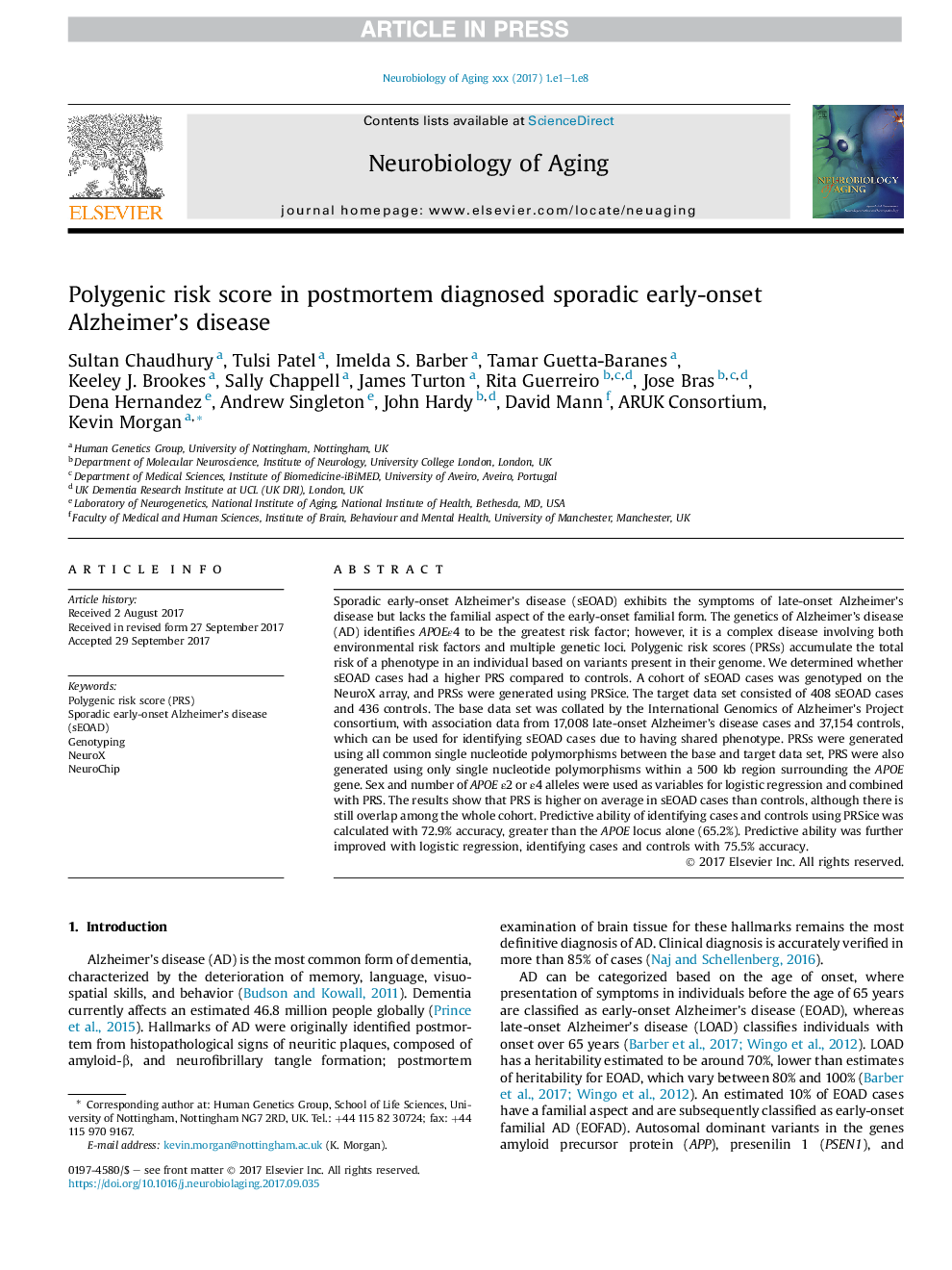ترجمه فارسی عنوان مقاله
نمره رگرسیونی پولی ژنیک در ابتلا به بیماری آلزایمر به طور غیرمعمول تشخیص داده شده است
عنوان انگلیسی
Polygenic risk score in postmortem diagnosed sporadic early-onset Alzheimer's disease
| کد مقاله | سال انتشار | تعداد صفحات مقاله انگلیسی |
|---|---|---|
| 117197 | 2018 | 8 صفحه PDF |
منبع

Publisher : Elsevier - Science Direct (الزویر - ساینس دایرکت)
Journal : Neurobiology of Aging, Volume 62, February 2018, Pages 244.e1-244.e8

